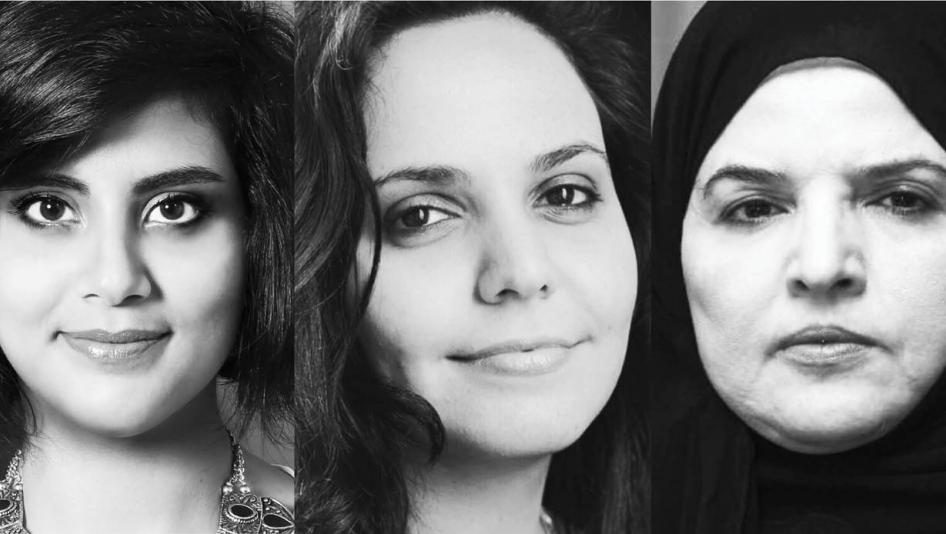This past month marked one-year since Saudi Arabia launched a wave of arrests targeting women’s rights activists as part of a larger crackdown against social reformers and those critical of the ruling family. The series of arrests specifically went after activists who publicly advocated on behalf of ending the female driving ban, which Saudi Arabia’s Crown Prince Mohamed bin Salman (MBS) lifted in June of 2018.
Those arrested included writers and activists Nouf Abdulaziz, Loujain al-Hathloul, and Eman al-Nafjan, all of whom were held incommunicado, tortured, and faced prolonged solitary confinement at the hands of Saudi authorities. In February 2019, a cross panel study by three British MPs confirmed that the conditions faced by these Saudi activists and others constituted torture under both international and Saudi law. All three of these women received Pen America’s Freedom to Write Award in recognition for their struggle against oppression, and willingness to use their writing in the service of human rights and freedoms. Despite international advocacy on behalf of the women’s rights defenders, Saudi authorities have yet to release all of the individuals they imprisoned last year.
The simultaneous lifting of the female driving ban, coupled with crackdown on activists who advocated for the ban’s end, illustrates the hypocrisy of the Crown Prince. On one level, MbS is globally marketing himself as a modern reformer through public relations stunts like his ambitious Saudi Vision 2030, an economic plan to diversify the Saudi economy away from oil, and towards renewable energy and technology. This radical new approach, however, acts as a veneer over an increasingly restrictive regime that brutally pursues and destroys dissent. Aside from the crackdown against women’s rights activists, Saudi Arabia has also silenced its critics beyond its own borders. In October of 2018, the Saudi Crown Prince was directly implicated by the CIA in the killing of Saudi journalist Jamal Khashoggi. While the Crown Prince projects a carefully choreographed, pro-western, business friendly appearance, his rise to power has in fact inaugurated a new era of brutality and repression for Saudi Arabia.
The arrest, imprisonment, and execution of pro-democracy activists and human rights defenders continues unabated in Saudi Arabia. In April of 2019, Saudi Arabia executed 36 individuals, some of whom had been charged with capital offenses as minors for engaging in pro-democracy rallies. Earlier that same month, eight individuals were caught up in a second wave of arrests that targeted supporters of the women’s rights defenders. In addition to arresting these individuals, authorities have also imposed travel bans on those close to the women’s rights defenders arrested last year.
Saudi Arabia’s continuing prosecution of women’s rights activists and human rights defenders more than a year later illustrates the Saudi government’s disregard for international human rights norms, women’s rights, and freedom of speech. It also indicates that the Mohamed bin Salman continues to operate under the same assumed impunity he used to initially avoid criticism during the early stages of the Khashoggi killing. By continuing to prosecute human rights defenders while projecting a supposedly pro-business veneer, the Crown Prince can continue to persecute his own citizens for advocating for their fundamental rights.
Casey O’Hara is an Intern at ADHRB





